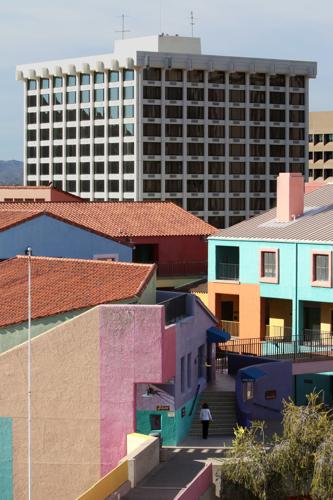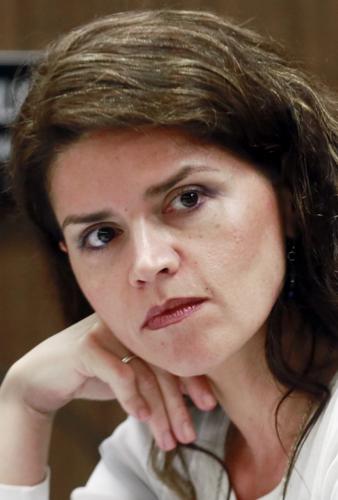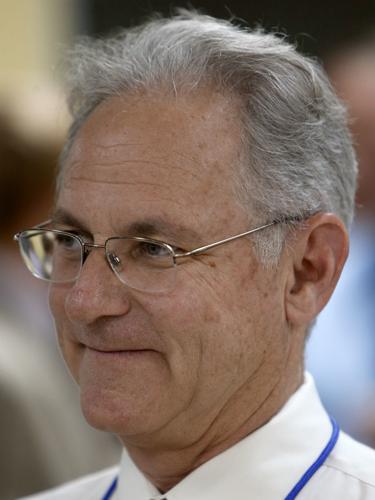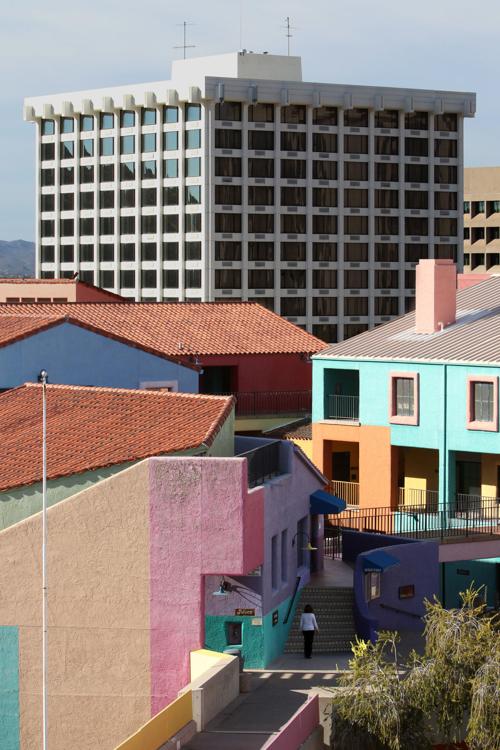Tucson drivers will find themselves in trouble if they are caught using a cellphone while behind the wheel, but only if they commit another, more-serious driving infraction.
The Tucson City Council was divided on Tuesday night over a proposal that will ban almost all hands-on use of a cellphone while driving.
As initially proposed, the measure would have allowed officers to pull over any driver they observed using a cellphone without a hands-free device while driving.
Councilwoman Regina Romero, however, voiced concerns about racial profiling, saying studies have shown blacks and Latinos are more likely to be pulled over for exhibiting the same behavior as white people.
She persuaded the council to make the new law a secondary offense, allowing officers to pull drivers over for using their cellphones only if they commit another driving infraction.
The council approved the proposed ban and directed staff to craft the new ordinance, which will be voted on by the council in two weeks.
Councilman Richard Fimbres, the only member to vote against the proposal, noted that distracted driving goes much further than just using cellphones. He wondered aloud why it would be legal to eat food while driving while at the same time punishing those holding their phones.
Those caught using their cellphones while driving inside the city limits will face a $50 fine, with the fine increasing to a minimum of $250 if the driver is also involved in an accident.
Tucson Police Chief Chris Magnus said after the meeting that he thought the council will revisit the subject in six months and his department will keep data on how the ban works.
Mayor Jonathan Rothschild said the cellphone ban was first step to address distracted driving, but not the last.
Other action
Also during the Tuesday meeting, the council agreed to evaluate a tax incentive for the redevelopment of the La Placita property downtown.
The brightly colored property is slated to be torn down in May, and the developer has submitted plans to build market-rate apartments.
Omar Mireles, president of HSL Properties, which owns the property, told the council he expects a studio apartment would cost about $900 a month.
The council’s acceptance of a $5,000 fee from HSL is a preliminary step in the process of evaluating the application, with a formal economic study expected to come back to the council in March.
Councilman Steve Kozachik asked whether the redevelopment of La Placita would jump-start plans for Hotel Arizona, which is also owned by HSL and has been empty since it closed in 2012.
Mireles said while HSL does own both properties, they have different investors behind them and the redevelopment of La Placita will not directly affect Hotel Arizona.
The council also signed off on an agreement with Raytheon Missile Systems — $6 million worth of additional tax breaks to help the company expand and hire 1,900 new employees.
The defense contractor is expected to spend roughly $400 million on the planned expansion, which was announced in November.
Rothschild called it the largest economic development agreement the city has approved in decades.









